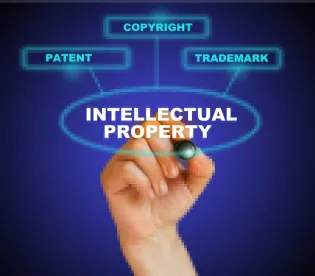The US Court of Appeals for the Federal Circuit affirmed a district court’s ruling on infringement, invalidity and damages, but remanded the case to the district court to reconsider the breadth of the “junctive” relief granted insofar as it enjoins conduct by a non-party to the case. Asetek Danmark A/S v. CMI USA Inc., FKA Cooler Master USA Inc., Cooler Master Co. Ltd., Case Nos. 16-1026; -1183 (Fed. Cir., Dec. 6, 2016) (Taranto, J) (Prost, CJ, dissenting in part).
Asetek sued two parties, CMI USA (a US corporation) and Cooler Master, a Taiwanese supplier of computer components, for patent infringement. CMI was Cooler Master’s exclusive distributor in the United States. Before trial commenced, Asetek dismissed its claims against the Taiwanese company. Asetek prevailed at trial and was awarded injunctive relief covering specific “Cooler Master” products found to infringe. The injunction was against both CMI and Cooler Master even though the latter was not a party to the suit. Cooler Master intervened and appealed.
On appeal, Cooler Master and CMI raised two arguments against the injunction. First, they argued that Cooler Master’s dismissal with prejudice from the case constituted adjudication with claim-preclusive effect. The Federal Circuit disagreed, explaining that preclusion does not bar relief as to future conduct, but only as to pre-dismissal conduct. The Court reasoned that the “claim” covered by the dismissal (Cooler Master’s pre-dismissal conduct) is not the same as a “claim” covering future conduct (Cooler Master’s post-injunction conduct). The Court noted that the time interval in question differentiates the claims so that they are not the same “claim” for claim-preclusion purposes.
Second, appellants asserted that the injunction was too broad in scope, as it reaches Cooler Master’s conduct beyond abetting a new violation by CMI, the only party adjudicated liable for infringement. The Federal Circuit explained that an injunction may not “make punishable the conduct of persons who act independently and whose rights have not been adjudged according to law.” However, the Court noted that in accordance with Fed. R. Civ. P. 65(d), an injunction may bind non-parties that are “in active concert or participation with” parties to the action or “legally identified with the liable party.”
In view of the relationship between the original defendants, the Federal Circuit also remarked that a non-party that sufficiently controls another’s litigation of a case “may be said to have had its day in court and on that ground be subject to the injunctive obligations,” noting that although Cooler Master possibly may be “legally identified” with CMI, that issue presents a fact-dependent determination that should be addressed by the district court. The Court remanded the case but did not vacate the injunction pending the remand determination.
Chief Judge Prost dissented, contending that the correct course of action would be to vacate the portions of the injunction that improperly reached Cooler Master. Prost pointed out that while the majority speculated about the relationship between Cooler Master and CMI, it provided no basis to justify the injunction against Cooler Master in its own capacity. Prost noted that the only exception to Rule 65(d) is Cooler Master aiding and abetting CMI’s acts of infringement.




 />i
/>i

